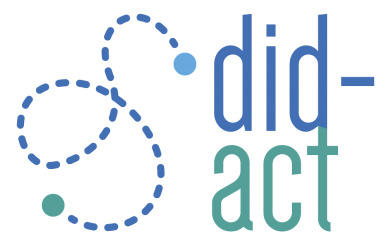An important part of our project is the testing of the developed learning units for students of the healthcare professions. With such pilot implementations we receive valuable feedback from the course participants, which will help us to further improve the learning units. Thus, each medical school in our consortium planned such a pilot implementation during fall/winter 2021.
Planning Pilot Implementations
Planning for the student units began in parallel to the train-the-trainer (TTT) units. This was done intentionally as it allowed for us to coordinate the trainers to be trained during the TTT pilots, ready for the student pilots later in the year. The consortium coordinated together in a document and focused on the following data:
- Topic of the course
- Piloting institution
- Dates of asynchronous phases and synchronous meetings
- Anticipated number of participants
- Professions of participants, i.e. whether the pilot was conducted in a mono-, multi-, or interprofessional setting
Continuing with our regular meeting pace, if not adding in a few more, we continued to meet consistently to work out any questions and support each other while we prepared. We also sought advice from our associate partners in Sweden, Switzerland, and the US in order to have a strong variety of opinions and input. Some of the pilots were also open to external participants so that we could also test outside our immediate consortium.
Implementing the pilots
Overall, we conducted 9 courses covering five different clinical reasoning topics until the end of January 2022.

While course registration and invitations were handled locally, all technical support was handled in collaboration with Instruct. Having a central partner leading this was very helpful as they explained course access, structure of pilots, and any facilitator resources needed for each pilot. Instruct also created a specific roadmap document for each partner alongside a more general short manual for how to register and access the DID-ACT Moodle platform.
We managed to recruit 188 medical and nursing students from partner-, associate partner-, and external institutions. In addition, we piloted our virtual patient units with a total of 618 students.
Pilot Implementation Results
Overall, the feedback from the facilitators and the interest of students participating in our courses especially in international and interprofessional settings was very positive. The facilitators highlighted the discussion among participants, but in some units more time than anticipated was required. Similar to the train-the-trainer courses technical challenges were reported by participants due to their unfamiliarity with our learning platform. The collected feedback together with the participant questionnaires will provide the basis for improving the courses.
We published the full summary of the pilots on our results page.







